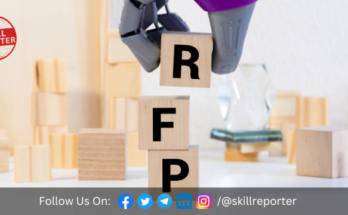Ministry of Civil Aviation has been focusing on skills planning and development in conjunction with public and private enterprises, and skilling bodies such as the National Skill Development Corporation (NSDC), Rajiv Gandhi National Aviation University (RGNAU), and Aerospace & Aviation Sector Skill Council (AASSC), with a view to deliver the best growth outcomes for the civil aviation sector.
IMaCS’s Comprehensive Skill Gap Report submitted to the Ministry highlights that 72,900 technicians and AMEs will be required by the industry by 2035. DGCA data indicates that 3,644 Basic Licenses and only 159 type rated AME licenses were issued in the last 5 years. The Ministry is launching four inter-related initiatives:
- Upgrade Training Infrastructure: DGCA is in the process of improving standards for recognition of AME training institutes in order to enhance the quality of training being imparted in these institutes.
- Facilitate Degrees for AMEs: RGNAU is planning to provide affiliation of AME training institutes and other colleges for awarding a graduate degree in Aircraft Maintenance Engineering. The University is also considering starting conversion courses for students who have completed course from AME training institutes to enable them to become graduates.
- Establish system for skill development: An interactive portal for registration, tracking, monitoring, and disseminating information for AMEs is being established. It would serve as a common platform for all stakeholders in building AME skills and employability, i.e. students, establishments, academia, training institutes, and regulatory agencies, to register, track and monitor implementation.
- Standardize AME Apprenticeship
(i) The Ministry in partnership with the airlines and MRO organizations has launched a one-year Standard AME Apprenticeship Program. Its hallmark is standardization, streamlining and transparency of the process for selection right through training and induction of AMEs by prospective employers. Students, passing out from DGCA-approved AME Training Institutes, who have also passed the exams for Papers 1 and 2 (or equivalent Modules) conducted by DGCA would be eligible to apply for this Apprenticeship. From the merit list of all registered candidates generated on the AME Portal, final selection for Apprenticeship would include assessments/ interviews by potential employers who are also registered on the portal with pre-announced vacancies.
Selected candidates would be trained academically with a substantial component of field experience using Standard Training Modules for Fixed Wing, Helicopters and Avionics Streams prepared by the aviation industry and DGCA. Employers would pay a minimum stipend of Rs. 3,542 per month (as may be revised from time to time by the Apprenticeship Act, 1961), or higher as per the company’s policy. A Certificate of Competence, which is also recognized as a Certificate of Experience of one-year by DGCA, would be issued by the establishment concerned to every successful Apprentice.
(ii) AIESL & Boeing AME Accelerated Apprenticeship Program: Considering the importance of skilled AMEs in a fast-growing aviation market like India, Boeing has taken the initiative to support Air India Engineering Services Ltd. (AIESL) in developing the AME Accelerated Apprenticeship Program. The key objectives of the Program are to improve the employability of AMEs through training and hands-on experience with actual aircraft. Students passing out from DGCA-approved AME institutes will be eligible to apply to the program. To be admitted, applicants must first perform well on an entrance examination. The AME Accelerated Apprenticeship Program will consist of one year of theory and practical learning in a smart-classroom environment, including select CAR66 Modules. Apprentices will also receive advanced training aids to help strengthen the theoretical concepts learned in the classroom. These will be supplemented by performing specific tasks on Boeing aircraft.
The first class will commence at the AIESL Mumbai facility in November 2017. At the end of the Program, successful candidates will receive a certificate from AIESL. They will also receive coaching on job interview skills to prepare them to find a job. Additional details about the Program, such as scope, fees, and entrance examination, will be available soon.
Speaking at the launch, Shri P. Ashok Gajapathi Raju, Honorable Minister of Civil Aviation said, “Skilled manpower is essential to the growth of India’s aviation sector. Ministry of Civil Aviation is improving the skill ecosystem through Standard Apprenticeship for Aircraft Maintenance Engineers prepared after active participation from industry in order to ensure steady supply of trained and industry-ready AMEs.”
Shri. Jayant Sinha, Honorable Minister of State for Civil Aviation remarked, “MoCA is committed to increasing the skills and employability of young men and women who join the booming aviation industry. With our detailed four-pronged approach to skill development for Aircraft Maintenance Engineers (AMEs), we are significantly upgrading their ability to hone their skills and find employment. Our learnings from this initiative will help us in expanding the scope to other trades and skills in aviation sector.”
Marc Allen, President of Boeing International said, “We are delighted to partner with Air India and the Ministry of Civil Aviation to support aircraft maintenance skilling initiatives through the Accelerated AME Apprenticeship Program. We congratulate the Ministry of Civil Aviation and Air India for their vision and leadership, in taking proactive steps to develop a skilled aviation workforce anticipating the demand for new aircraft in the near future.” He added, “Considering employability is often related to the quality of skills, we are happy to help Air India with their endeavor to enhance the skills of students aspiring to join this fast-growing industry.”
Note: News shared for public awareness with reference from the information provided at online news portals.



